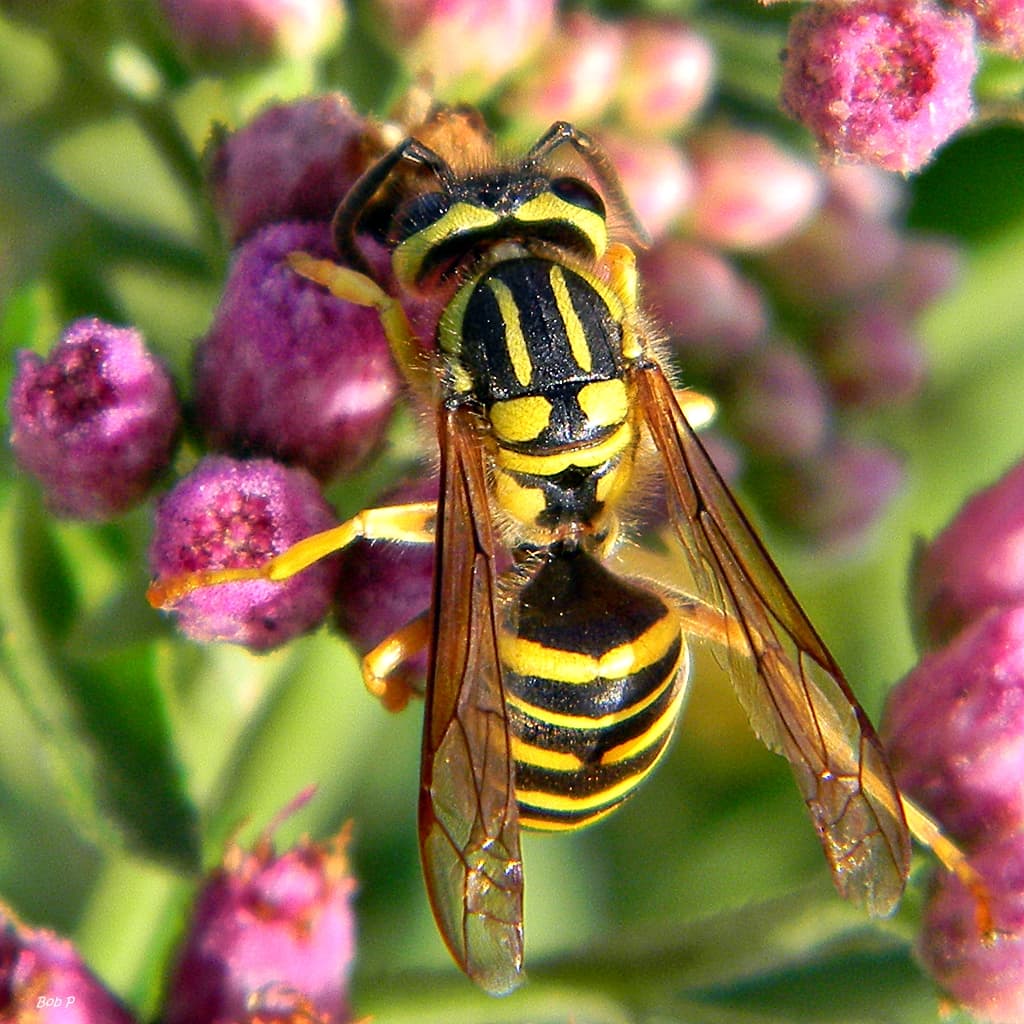Yellow Jacket
Vespula spp.
Stinging InsectsSocial wasp with yellow and black bands, about 1/2 inch long. Builds paper nests underground or in wall voids. Highly aggressive, especially in fall. Scavengers attracted to sugary foods and proteins.

Control Methods
Recommended methods for controlling this pest
| Method | Type | Effectiveness | Requirements |
|---|---|---|---|
| Power Spray Application | Chemical | Required | |
| Wasp and Hornet Nest Treatment | Chemical | None | |
| Preventative Wasp Treatment | Chemical | Required | |
| Ground Wasp Dust Treatment | Chemical | Required |
Common Harborage Locations
Where to find this pest during inspections
| Location | Why Found There | Priority |
|---|---|---|
| Soffit Vents | Direct entry to attic, often screened inadequately, warmth escapes through vents. | Medium |
| Ground Burrows & Cavities | Ground-nesting bees and wasps utilize existing holes. Yellow jackets frequently nest in old animal burrows. Protected from elements. | Medium |
| Wall Voids & Structural Cavities | Yellow jackets and hornets build paper nests in protected voids. Warm, dry, protected from weather. Often accessed through small gaps in siding or vents. | High |
| Eaves & Overhangs | Paper wasps and mud daubers build exposed nests on protected horizontal and vertical surfaces. Sheltered from rain, close to building for hunting prey. | Medium |
Important Disclaimer: The information provided in this knowledge base is for educational and reference purposes only. Pest management professionals should always consult current product labels, Safety Data Sheets (SDS), manufacturer instructions, and applicable local, state, and federal regulations as the definitive source of truth. Product formulations, application methods, safety requirements, and regulations may change over time. This information may be out of date and should not replace professional judgment, proper training, or required licensing and certifications.